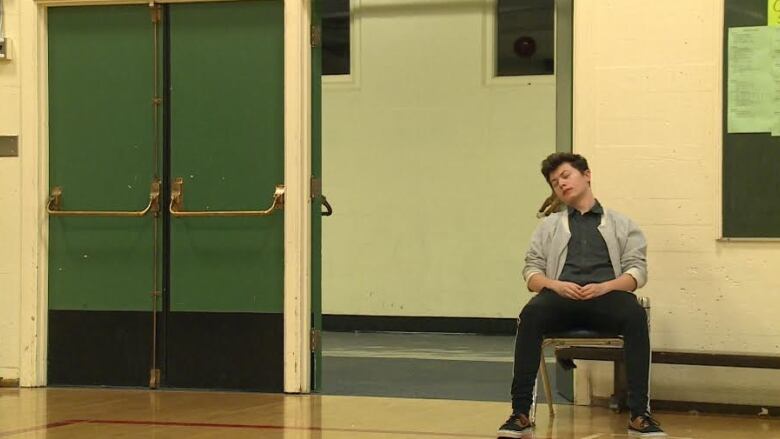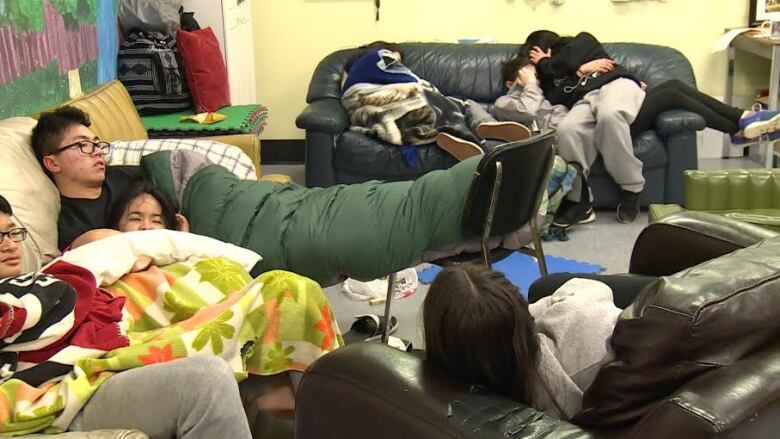Sleepless in East Vancouver: Teaching students the importance of rest
'A lack of sleep, you're out for the count,' says high school student

Students at Vancouver Technical Secondary School wanted to learnhowsleep deprivation affects their minds and bodies.
They got acrash coursewhen about 120students arrived at the east end high school Fridayat dusk and deliberately stayed up all night.By dawn, moststudents were beyond tired.
"I'm probably going to pass out," said Grade 11student Cyrus Jordan in an interview Saturday morning.
The event was billed as a"Wake-a-thon".Throughout the night andmorning, students performed physical and mental exercises to test their reactions to sleep deprivation.
- Sleep disorders will affect 40% of Canadians, pose serious health risks
- High School students say smartphones, stress big factors in sleep deprivation
"I hope that a lot of people realize that pullingall-nightersreally isn't a good idea,"Jordan added."You get mood swings. You get all sorts of stuff."
Grade 12student Charlotte Keay noticed her reflexes dulled as the night wore onshehad trouble catching aruler dropped between her hands.
"It was just too quick for me to process," she said. "The reflexes I noticed the most."
9.5 hours per night
The night-long marathon was the latest in a series of events at the high schoolaimed at improving students' awareness of the effects of sleep deprivation.
Grade 12 counsellor Veronika Farnellsaid an earlier surveythat asked studentsabout their moods and sleep habits foundthat students at Vancouver Technical Secondary School hadhigher incidents of anxiety and weren't getting the recommended amount of sleep.
Farnell said teenagers needabout nine-and-a-half hoursof sleep per night. Vancouver Technical students were getting on averageabout seven-and-a-half hours.

To address that deficit, the school initiated projects to get studentsthinking about what keeps them up at night. Vancouver Coastal Health Authority and researchers from the University of British Columbia providedassistance.
Farnell puts part of the blame on technological devices from glowing smartphones, which manyteens bringto bed to tablets and laptops.
She's found multi-episodeseries like those on Netflix cause some students tobinge watch lateinto the night.
She saidparents also don't seem to realize that kids are on their phonesall the time.
"At night in bed, textingeachother", which she saidstudies show, "createsa bit of an adrenaline rush in the body."
Keay said she's often seen the effects of a bad sleep at school.
"Focusing is really hard," she said."You're just kind of like a shell, just sitting there in your classroom, trying to learn, maybe not, just sleeping on your desk."
Teachers and students will study the results gathered from the Wake-a-thon in the coming months.
With files from Rafferty Baker












_(720p).jpg)


 OFFICIAL HD MUSIC VIDEO.jpg)
.jpg)



























































































